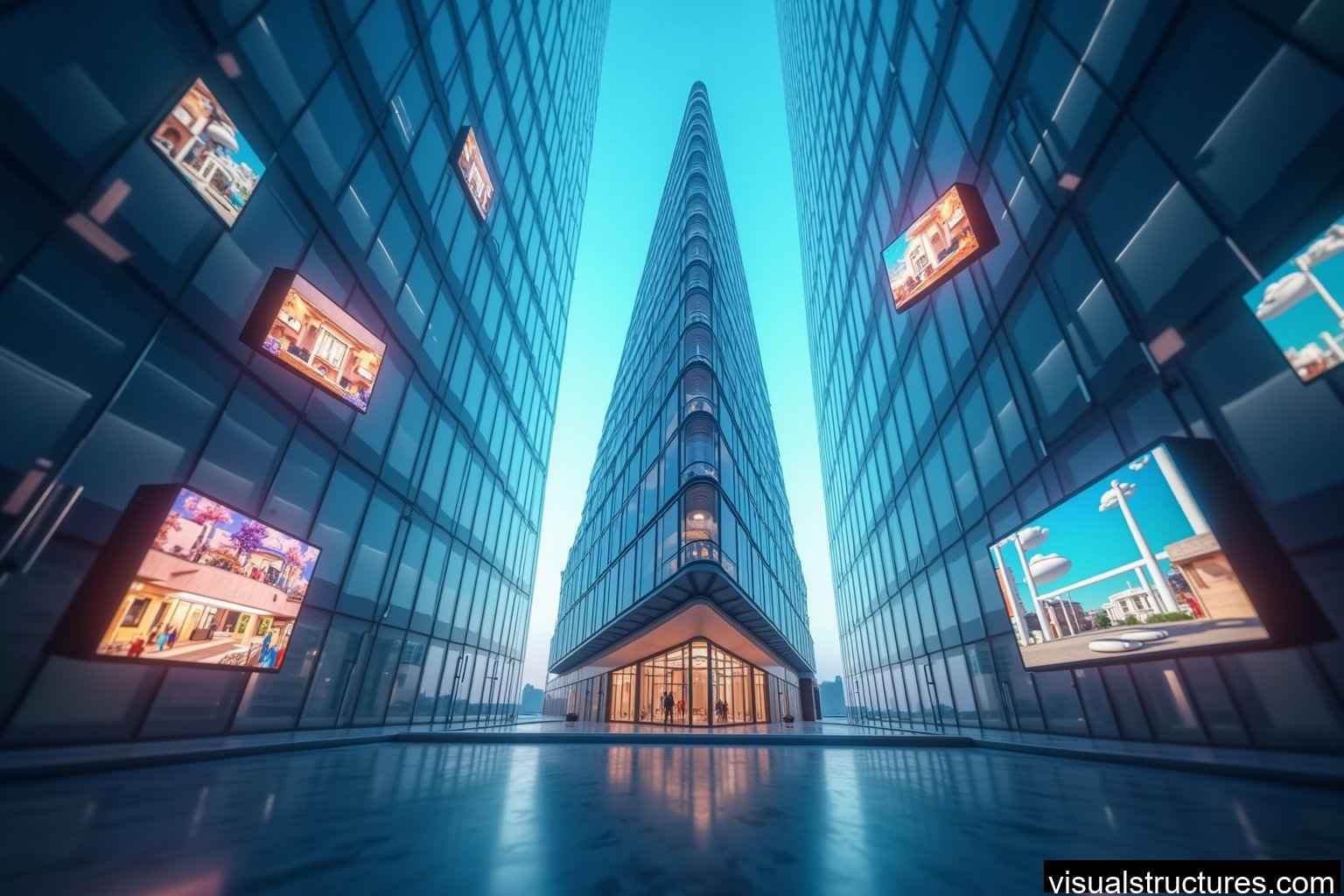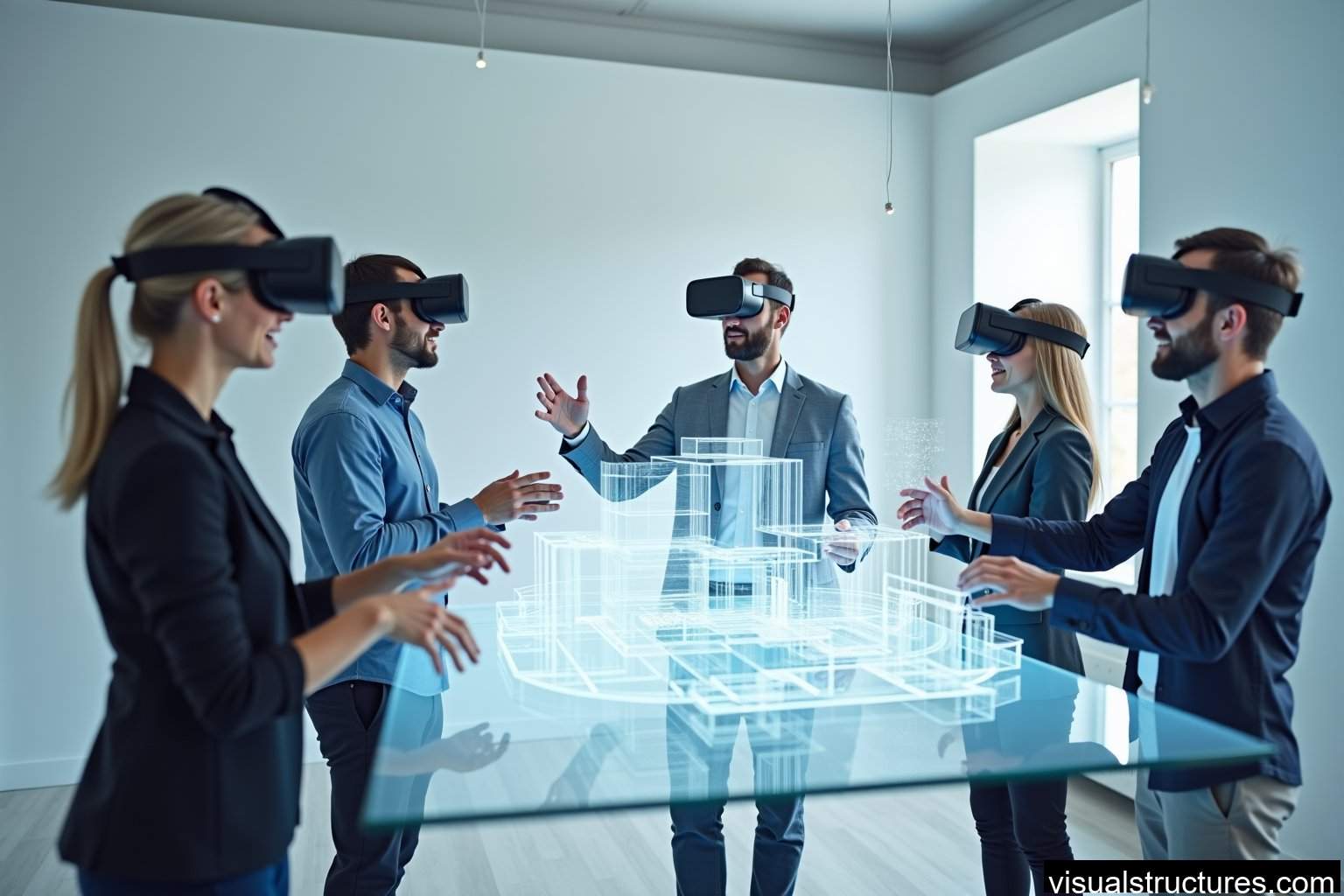Revolutionizing Architectural Design: Exploring the Potential of Virtual Reality

Table of Contents
- Main Content:
- The Power of Virtual Reality in Architectural Design
- #### Immersive Design Reviews for Better Collaboration
- #### Streamlining Design Decisions and Reducing Costs
- Tutorials and Case Studies: Learning from Industry Professionals
- #### Mastering VR Tools and Techniques
- #### Learning from Real-World Examples
- Future Implications and Possibilities
- Conclusion:
Introduction: In a world where technology continues to shape and redefine industries, architecture and design are no exceptions. Traditional methods of presenting and visualizing architectural projects are gradually being replaced by innovative tools and techniques that offer more immersive experiences. This is where VisualStructures.com comes in. As a leading design and architecture platform, VisualStructures.com is on a mission to empower professionals with the skills and resources they need to tell their story effectively through visual means. One such tool is the utilization of virtual reality (VR) technology.
Main Content:
The Power of Virtual Reality in Architectural Design
Architectural design is a multidimensional art form that goes beyond just lines and drawings. It involves creating spaces that elicit emotions and convey narratives. Traditional renderings and 3D modeling offer a glimpse into what a final project might look like, but they often fall short in capturing the essence of the spaces. This is where VR comes in, allowing architects and designers to fully immerse themselves and their clients in a virtual environment that closely resembles the final product.
#### Immersive Design Reviews for Better Collaboration
One of the most significant advantages of using VR in architectural design is the ability to conduct immersive design reviews. With VR headsets, clients and designers can walk through virtual spaces, experiencing the scale, materials, and ambiance in real time. This facilitates better collaboration as stakeholders can provide feedback based on actual experiences rather than solely relying on imagination. According to a study by the American Institute of Architects, 70% of architects believe that VR enhances client engagement and understanding during the design process.
#### Streamlining Design Decisions and Reducing Costs
Traditionally, design changes required time-consuming revisions to 2D drawings or static 3D models. With VR, architects can make design decisions in real time, speeding up the process significantly. By visualizing and experiencing the project from multiple angles, designers can identify potential flaws or areas for improvement early on, saving valuable time and resources. In fact, a report by the National Institute of Building Sciences found that integrating VR into the design process reduced errors and change orders by up to 75%.
Tutorials and Case Studies: Learning from Industry Professionals
VisualStructures.com understands that adopting new technologies can sometimes be daunting, especially for those who are unfamiliar with VR. To bridge this gap, the platform provides comprehensive tutorials and case studies that guide professionals through the integration of VR into their design processes.
#### Mastering VR Tools and Techniques
The tutorials offered on VisualStructures.com cover a wide range of VR tools and techniques, catering to both beginners and experienced users. From basic navigation in virtual spaces to more advanced features like environment manipulation and lighting effects, designers can develop the necessary skills to create breathtaking visual presentations. With step-by-step instructions and practical examples, the learning curve becomes more manageable.
#### Learning from Real-World Examples
Case studies are another valuable resource offered by VisualStructures.com. These real-world examples provide insights into how architecture firms successfully implemented VR in their projects, showcasing the benefits and challenges they encountered along the way. By examining these case studies, professionals can gain inspiration and learn best practices from industry leaders.
Future Implications and Possibilities
While the integration of VR into architectural design processes is already making a significant impact, the future holds even more exciting possibilities. As hardware and software continue to evolve, VR technology will become more accessible and user-friendly. Imagine designers collaborating in virtual real-time, with the ability to manipulate and experiment with spaces effortlessly. The advent of extended reality (XR) technologies, such as augmented reality (AR) and mixed reality (MR), offers additional avenues for architectural storytelling. With these advancements, the possibilities for creative expression within the architectural realm are truly limitless.
Conclusion:
In the ever-evolving world of architecture and design, embracing new technologies is crucial for staying ahead. VisualStructures.com is at the forefront of this movement, providing architects, designers, and developers with the tools, tutorials, and case studies they need to harness the power of virtual reality for compelling visual storytelling. By integrating VR into their design processes, professionals can enhance collaboration, streamline decision-making, and create immersive experiences that truly resonate with their clients. With its commitment to innovation and education, VisualStructures.com is paving the way for the future of architectural design. Join the revolution and unlock the full potential of virtual reality in your next project.
Related Resources
Internal Links: - Check out our VR tutorials to discover tips and tricks for mastering this groundbreaking technology. - Dive into our case studies for real-world examples of how VR is shaping architectural design processes. - Explore the future of architectural storytelling with extended reality (XR) technologies.




